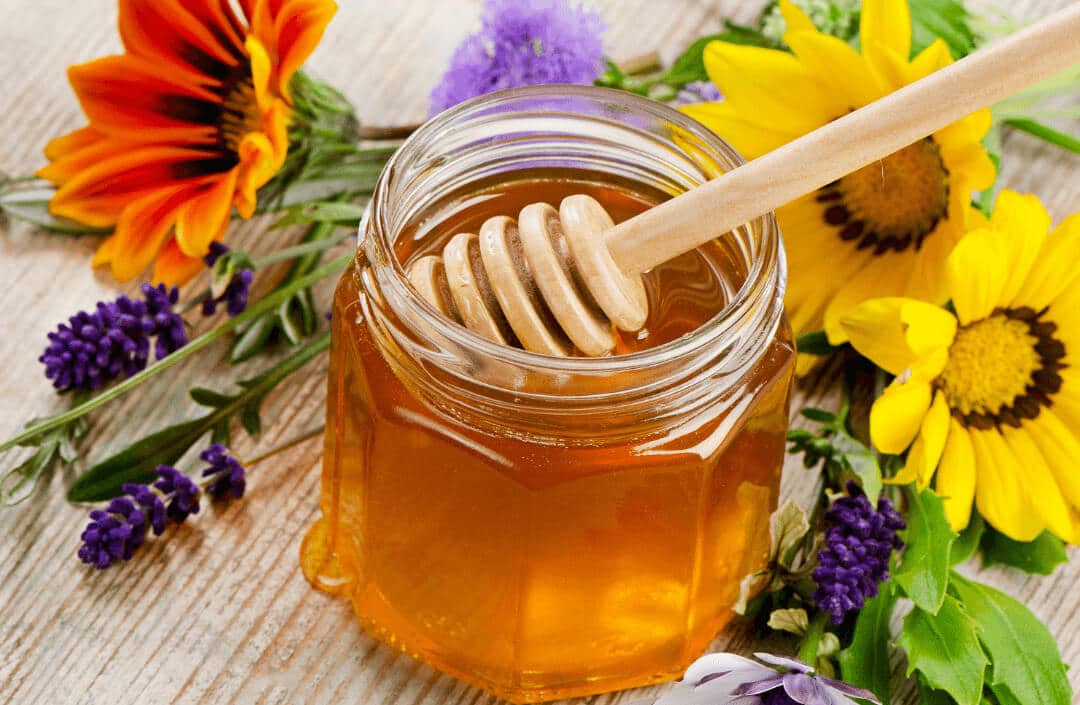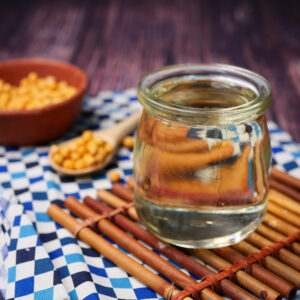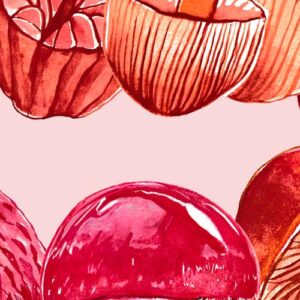Table of Contents
Hay fever is a typical seasonal allergy that affects millions of people around the world. Sneezing, itchy eyes, and a runny nose characterise it. It can be a real nuisance, but there are some natural remedies that can help you find relief.
PROFESSIONAL AREA | We have the best training resources in Mycology applied to health.

Why do we suffer from hay fever?
Hay fever, also known as allergic rhinitis, is an allergic reaction to airborne particles such as pollen, dust mites, mould, and pet dander. The body’s immune system mistakes these particles as a threat and releases histamine and other chemicals to fight them off, resulting in hay fever symptoms such as sneezing, a runny nose, itchy eyes, and congestion. Studies have found that hay fever is caused by an overactive immune system, which is triggered when the body is exposed to an allergen. This causes the body to produce excessive immunoglobulin E (IgE) antibodies, which then bind to mast cells in the nose, eyes, and lungs, releasing histamine and other chemicals that cause hay fever symptoms.
More about the symptoms
We have already mentioned some symptoms that may be caused by hay fever in the previous paragraph. According to NHS UK there are ample examples that can cause symptoms of hay fever, these include:
1. Runny nose: Hay fever can cause your nasal passages to become congested and produce an excessive amount of mucus. This can lead to a runny nose, sneezing, and a stuffy feeling.
2. Itchy eyes: Hay fever can cause your eyes to become itchy, watery, and red. You may also experience swelling around your eyes.
3. Coughing: Hay fever can cause a persistent cough as your body attempts to clear the allergens from your airways.
4. Sore throat: Allergens in the air can irritate the throat, leading to a sore throat.
5. Headache: Hay fever can cause headaches due to the inflammation in your sinuses.
6. Fatigue: Hay fever can cause you to feel tired and fatigued due to the inflammation and irritation caused by the allergens.
7. Loss of smell: Hay fever can cause a temporary loss of smell due to the inflammation in the nasal passages.
Hay fever can last for weeks or months, unlike a cold, which usually goes away after 1 to 2 weeks.

More on the natural remedies you can use to better your hay fever
Unfortunately, as there is no cure for hay fever, we have to learn to manage the symptoms to improve our quality of life. Whilst some preventative measures should be implemented, like avoiding triggers that can vary from pollen to changes in your nutrition. The most common recommendation when it comes to hay fever is avoiding pollen. However, though this is a great suggestion, it can become quite difficult to avoid pollen altogether. According to the Met Office, the levels of pollen have been rising year after year, and the amount of people suffering from hay fever keeps growing, especially in densely populated cities like London.
Allergy UK suggests the increase may be closely linked to rising temperatures in the UK. Amena Warner, head of clinical services, says evidence suggests climate change and increasing temperatures may contribute to extending the grass pollen season in the UK – and grass pollen is the cause of the majority of pollen-driven hay fever symptoms.
NETTLE
Nettle is a perennial plant that has traditionally been used to treat hay fever. It contains compounds that reduce inflammation and can help reduce the severity of hay fever symptoms.
MEDICINAL MUSHROOMS
PROBIOTICS
Probiotics can help reduce inflammation and improve the balance of bacteria in the digestive tract, which can help reduce hay fever symptoms.
VITAMIN C
Vitamin C is an antioxidant that can reduce inflammation, improve immune system function, and help reduce the severity the symptoms.
BROMELAINE
Bromelain is a compound found in pineapple that can help reduce inflammation and improve immune system function, which may help reduce the symptoms of allergies.
BROMELAINE
Some people anecdotally report that consuming local honey can help reduce the symptoms of hay fever. The idea is that if you consume honey made from the same pollen that is causing your hay fever, it may help your body become desensitised to it. However, there is no scientific evidence to back this up.
Repairs against external aggressions
The unique mushroom extracts of Reishi (Ganozumib) and Cordyceps (Cordyzumib) provide essential nutrients for the skin and support its natural functioning by acting on skin oxidation and bacterial infections, even repairing toxicity generated from specific medical treatments.
Why medicinal mushrooms can help hay fever
Medicinal mushrooms are believed to be beneficial in treating hay fever because they are packed with antioxidants that can help to reduce inflammation and respiratory issues. These mushrooms contain compounds that can help reduce the production of histamine, which is a compound released during an allergic reaction like hay fever. Medicinal Mushrooms are immunomodulators that help the immune system to adapt to stressors as necessary for healthy balance, as opposed to immunostimulants that only activate the immune system and are more likely to trigger an inflammatory cytokine storm.
Mycotherapy can provide timely support for seasonal allergies. The primary support HdT recommends at this time is Royal Sun Agaricus (Agaricus Blazei Murill) because of its proven antihistaminic and immunomodulatory effects as a nutraceutical in allergies, including those to tree pollen. In addition, Reishi (Ganoderma lucidum) can also help reduce inflammation and inhibit histamine release by mast cells.

More about reishi
Ganoderma lucidum (Reishi) has been characterised as a wonder herb and is considered a powerful medicinal mushroom with immune-modulating and immune-potentiating capabilities (Bhardwaj et al., 2014). The extracts of this mushroom contain triterpenes with antioxidants, antihistamines and significant anti-inflammatory activity. In fact, it’s suggested that Ganoderma lucidum has an anti-inflammatory action comparable to hydrocortisone without the negative side effects.
The modulating action of the β-glucans present in the polysaccharide fraction of the Reishi extract are essential on the immune system allowing the organism to be brought from a Th2 state situation (pro-inflammatory and with an exacerbated immune response) to a Th1 / Th2 equilibrium homeostasis, as several studies demonstrate [Powell, 2006; Habijanic et al., 2015].
It consists of triterpenic lanostane like ganoderic acids: A, B, C and D and cyclooctasulfuro which inhibit the secretion of histamine. [Kohda et al., 1985; Tasaka et al., 1988b; Russell et al., 2006], and has a stabilizing effect of mast cells, preventing degranulation and the release of proinflammatory cytokines [Powell, 2006].

More about royal sun mushroom
Agaricus blazei Murill (AbM) Royal Sun Mushroom not only stimulates a weak immune system but also brings balance to the Th1 and Th2 response and acts, as an anti-histaminic remedy, due to specific biocomponents that inhibit histamine release by mast cells and reduce IgE specific allergy antibodies.
Studies show that extracts of AbM may both prevent allergy development and be used as a therapeutic substance against established allergies (Ellersten et al., 2009). Interestingly, a study in 2019 showed a significant reduction of general allergy and asthma symptoms as well as in the use of medication when supplementing with a mushroom extract of AbM in birch pollen allergic participants (Mahmood et al., 2019).
In another trial also with mice, there was a tendency to reduce the levels of Th2 cytokines compared to those of Th1 after being treated with an extract composed of 82% of Agaricus blazei and 15% of extract of Lion’s Mane, concluding that the extract of Agaricus blazei can be used with therapeutic effects in both the prevention and development of an allergy [Ellertsen et al, 2009]. The general anti-inflammatory effect of the extract of Agaricus blazei in vivo supports its anti-allergenic effect.
What should be avoided during allergy season
Foods to avoid during hay fever season include:
1. Alcohol: alcohol can cause inflammation and can worsen allergies, especially hay fever.
2. Dairy Products: dairy products can make hay fever symptoms worse, especially if you’re lactose intolerant.
3. Processed Foods: processed foods are high in preservatives and additives, which can cause inflammation and irritate the immune system.
4. Caffeine: caffeine can cause dehydration and exacerbate hay fever symptoms.
5. Refined Sugars: refined sugars can cause inflammation and worsen hay fever symptoms.
By avoiding these foods during allergies season, you can help reduce your symptoms and discomfort.
Summary…
WE RECOMMEND

Linoleic Acid: Why This Essential Omega-6 Is Vital for Your Health
☑️ Linoleic acid is a polyunsaturated omega-6 fatty acid essential for human health, as the body cannot synthesise it and must obtain it through diet. This fatty acid plays several critical roles, including supporting skin integrity, contributing to the formation of cell membranes, and serving as a precursor to important bioactive compounds. Its anti-inflammatory properties and role in maintaining the skin barrier make it particularly beneficial for skin health. Understanding the importance of linoleic acid and ensuring adequate intake can significantly impact overall well-being.

Are all red mushrooms toxic?
Red mushrooms are often perceived as toxic, but sometimes other properties are also recognised. Let’s discover them together in this post.
